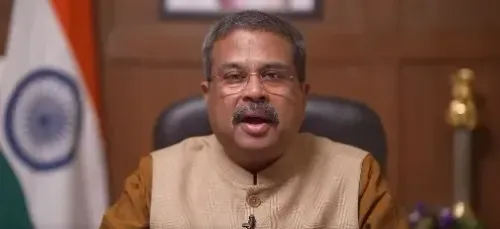NGT Directs Compliance of Environmental Regulations by Thermal Power Plants in Aurangabad’s Nabinagar

New Delhi, Dec 30 (NationPress) The National Green Tribunal (NGT) has mandated two thermal power facilities situated in Nabinagar, part of Bihar's Aurangabad, to correct minor infractions of environmental regulations.
The tribunal initiated an original application based on a letter petition submitted by Vijay Kumar Singh, also known as Dablu Singh, a local resident of Aurangabad.
The petitioner claimed that the fuel utilized for electricity generation at the two thermal plants operated by the National Thermal Power Corporation (NTPC) included waste materials such as black filter dust and rejected coal, leading to air pollution and health risks for the community.
Upon preliminary examination, the NGT determined that a significant environmental issue had been identified and instructed the formation of a Joint Committee comprising members from the Central Pollution Control Board (CPCB), the Bihar State Pollution Control Board (BSPCB), the Integrated Regional Office of the Union Ministry of Environment, Forest and Climate Change, along with the District Magistrate of Aurangabad.
The Joint Committee submitted a report to the tribunal in November 2024, detailing its findings and recommendations following site visits to both thermal plants.
According to the report, while the project operators were not found in violation of environmental laws on significant issues, some minor infractions were noted, and the Joint Committee recommended action regarding these points, as stated by Justice Sudhir Agarwal, head of the bench.
Upon reviewing the report, the NGT instructed the relevant project operators to implement the Joint Committee’s recommendations within a three-month timeframe.
The bench, which also included expert member Dr. Afroz Ahmad, emphasized: 'We believe that these recommendations should be enacted upon by the responsible operators as they are crucial for enhancing the environment and ensuring thorough compliance with environmental regulations.
Additionally, the NGT directed the BSPCB to check the compliance status and submit a report to the Registrar of its Eastern Zone Bench in Kolkata by March 15, 2025.
They clarified that should project operators have objections to any part of the recommendations, they are free to approach the Tribunal by submitting a suitable application for resolution of their concerns.
The Joint Committee suggested various measures, such as installing a wheel washing system at the ash dyke's exit, ensuring that vehicles transporting fly ash are entirely covered, and regularly implementing a mechanical vacuum cleaning system on all RCC roads.









